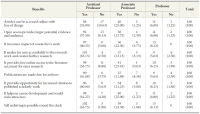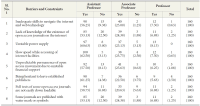JOURNAL OF INFORMATION SCIENCE THEORY AND PRACTICE
- P-ISSN2287-9099
- E-ISSN2287-4577
- SCOPUS, KCI
1권 4호
초록
Abstract
It is but a short journey from citation indexing to citation analysis and thence to evaluative bibliometrics. This paper outlines the path and describes how the time-honored practice of affixing bibliographic references to scholarly articles has paved the way for a culture of accounting to establish itself in contemporary academia.

초록
Abstract
Organizational climate and organization culture can be some of the leading factors in hindering knowledge sharing within the organization. It is generally accepted that successful knowledge management practice, including knowledge sharing, comes as a result of a conducive and knowledge sharing friendly environment. Organizations that promote and reward collective work generate a trustful and a more collaborative learning culture. The perception of fairness in an organization has been considered an important indicator of employee behavior, attitude, and motivation. This study investigates organizational justice perception and its impact on knowledge sharing practices among forensic experts in the Turkish National Police. The study findings revealed that senior officers, who are experts in the field, have the strongest organizational justice perception. Meanwhile, noncommissioned officers or technicians bear positive but comparatively weaker feelings about the existence of justice within the organization. The study argues that those who satisfy their career expectations tend to have a higher organizational justice perception.



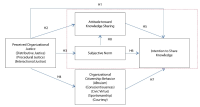

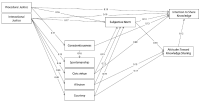

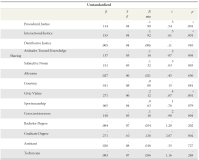

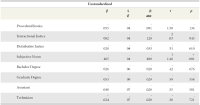



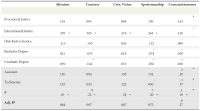
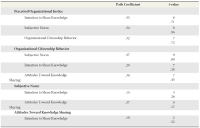



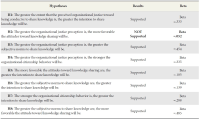
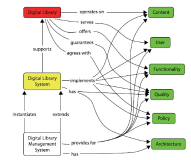
초록
Abstract
The proliferation of digital libraries (DL) in the twenty-first century has revolutionized the way information is generated and disseminated. This has led to various practical and research models of DLs. This paper discusses the concept and development of digital libraries, and examines various components and characteristics of DLs. It further identifies various models and theories of digital libraries with a special focus on the DELOS Reference Model and 5S Theory. The relationship between the two focused frameworks is analyzed for better understanding of their application in the DL universe.

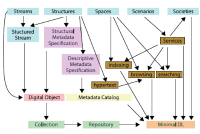
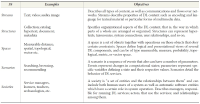

초록
Abstract
The aim of this study is to examine the user’s online searching behavior in IR interfaces of e-journal database systems. The study is purely based on survey methods and tries to analyse the online searching behavior of respondents of social science disciplines who were doing research in three target central universities of Delhi (i.e. DU, JMI, and JNU). For measuring the responses of the respondents in IR interfaces of e-journal database systems, a total of 396 questionnaires were distributed among the students and out of all, 305 responses were used for the study. The findings of the study reveal that most of the students were not using all the facilities offered in IR interfaces of e-journal database systems for their retrieval process and also encourages menu based searches rather than command based searching.









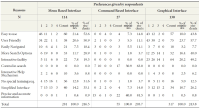





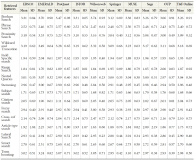
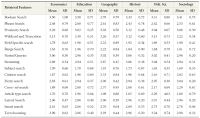



초록
Abstract
This paper discusses awareness of institutional repositories and open access publishing among faculty members in Annamalai University, Tamil Nadu, India. The authors distributed 200 questionnaires among the faculty members in Annamalai University. Out of 200 questionnaires, 160 responses (80.00%) were received from faculty members. The respondents mentioned the motivating factors while using an institutional repository and indicated the benefits, constraints and strategies to develop open access in publications. It is evident from the table that more than 95% among the average of the faculty members confirm the benefits of open access in publications. 150 (93.75%) of faculty members have awareness, 6 (3.75%) have no idea and 4 (2.50%) state no opinion about awareness of institutional repository and open access publishing.







